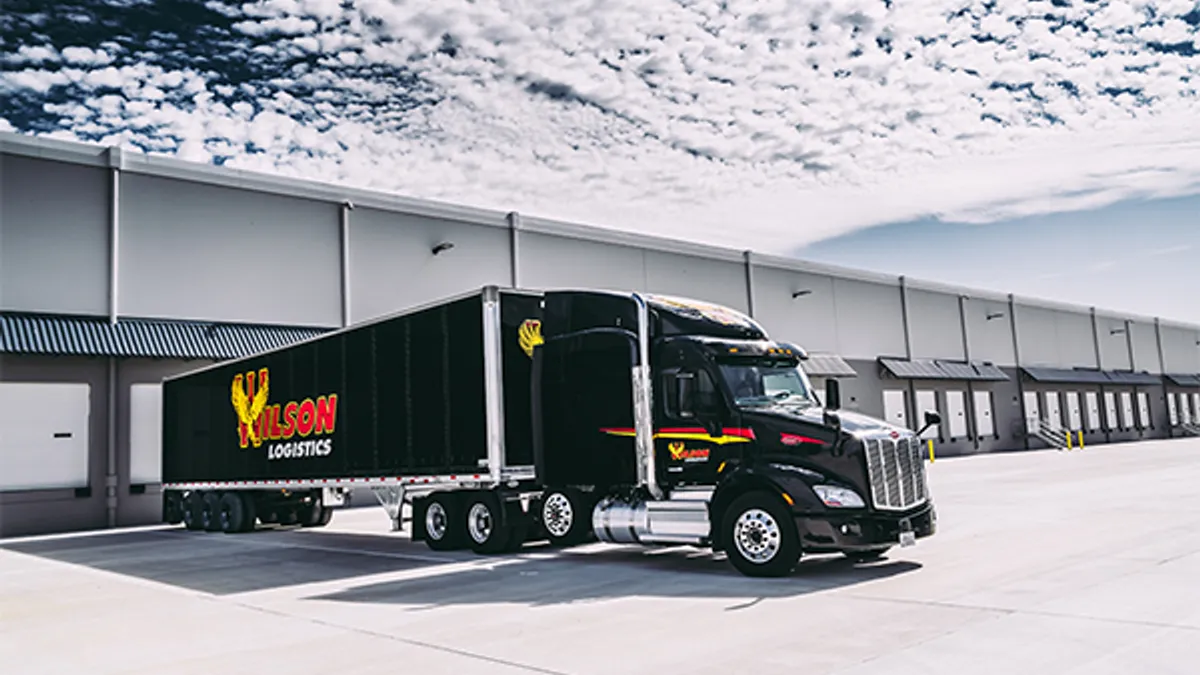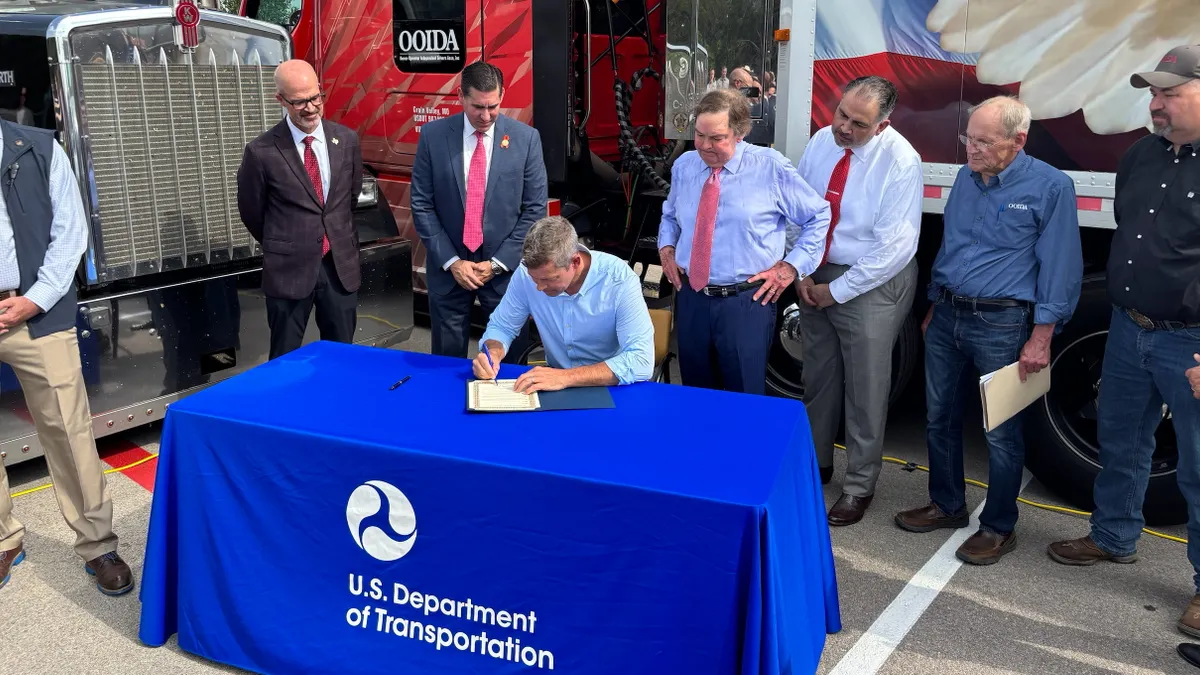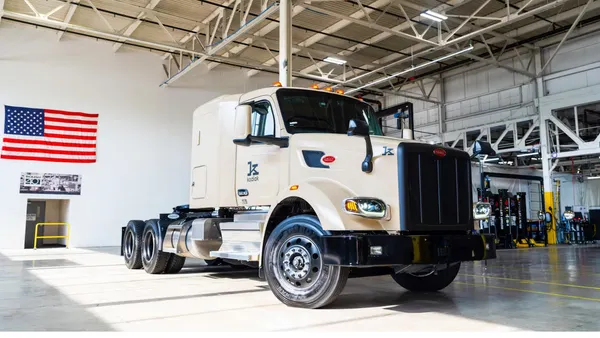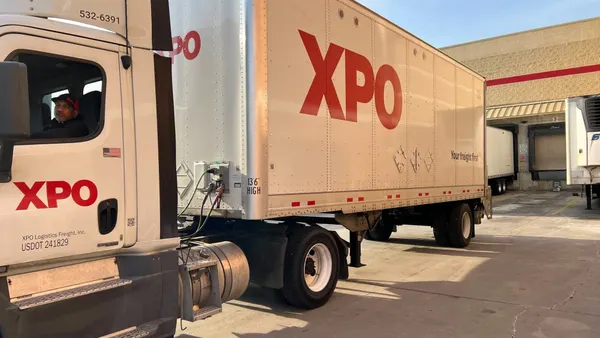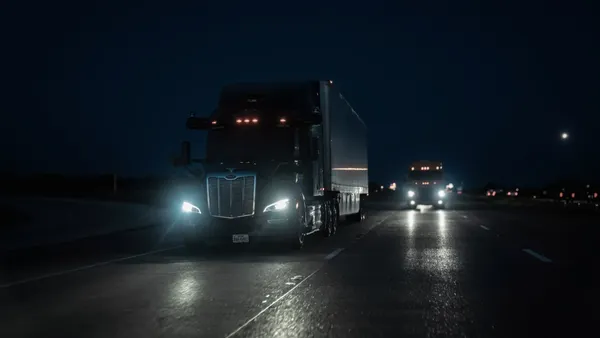Dive Brief:
- Locomation, a technology company that offers human-guided autonomous convoying, signed an agreement establishing a multi-year partnership with Wilson Logistics, a transportation logistics company based out of Springfield, Missouri. During the three-year pilot, Locomation will employ its Autonomous Relay Convoy (ARC) technology.
- ARC allows one driver to pilot a lead truck while a follower truck operates in tandem through Locomation's fully autonomous system. This allows the follower driver to log off and rest during this time. At peak implementation, the agreement is expected to operate more than 62 two-truck convoys for Wilson.
- The agreement will put Locomation's autonomous technology on the road across 11 Wilson Logistics shipping segments, according to a Locomation news release.
Dive Insight:
Autonomous trucks are the talk of the transport industry.
But a question looms: When will they work without problems? That day seems to be approaching. In August 2018, Hyundai demonstrated its autonomous truck model, driving 40 kilometers on a real cargo delivery in South Korea. Hyundai said it wants to produce fully autonomous trucks, and has plans to commercialize autonomous convoy-driving capability some time this decade.
Locomation's technology combines autonomy with convoying (or platooning), which cuts down on air resistance, saving fleets fuel costs. During the pilot, Locomation will provide a two-truck convoy with safety staff and will work in tandem with the Wilson Logistics operations team to make the most efficient freight movements possible. Wilson Logistics will deploy 124 trucks in the initial phase, before ultimately expanding to more than 2,000 or more ARC-equipped trucks operating daily in their networks.
Wilson Logistics will make strides in reducing its energy spend while improving safety, according to Darrel Wilson, chairman and CEO of Wilson Logistics, in a March 3 news release. Wilson said the autonomous technology also makes the truck a much better place to work for its team of professional truck drivers. The deal is part of Wilson Logistics' initiative to improve driver experience while boosting profitability through innovative technology solutions.
Some industry experts believe it will take more time for autonomous trucks to become a large factor in the trucking industry.
"I do envision a time when [autonomy] will be a workable option," said Avery Vise, vice president of trucking research at FTR, speaking to Transport Dive.
But Vise has questions about costs and execution. Right now, autonomous technology is expensive, and fleets still plan to have drivers in at least one convoy vehicle, Vise said. That makes saving money harder. Still, Vise said, fleets will figure it out — in time.
"I think it will happen," said Vise. "I think it can make a measurable contribution to productivity in trucking. But I don't see it being the dominant paradigm within the next decade, at least."
Wilson Logistics said the pilot program will have real savings: It will reduce operating costs by 33% per mile, with an 8% reduction in fuel expense. The convoy system will also remove 41 metric tons of carbon dioxide from the air, per tractor, annually, Wilson Logistics officials said. Experts see environmental benefits from platooning.
Locomation officials said the company expects to begin operations at Wilson Logistics this spring. It is anticipated that the next phase in the partnership will involve delivering more than 1,000 two-truck convoys, on more than 68 ARC segments nationwide.


